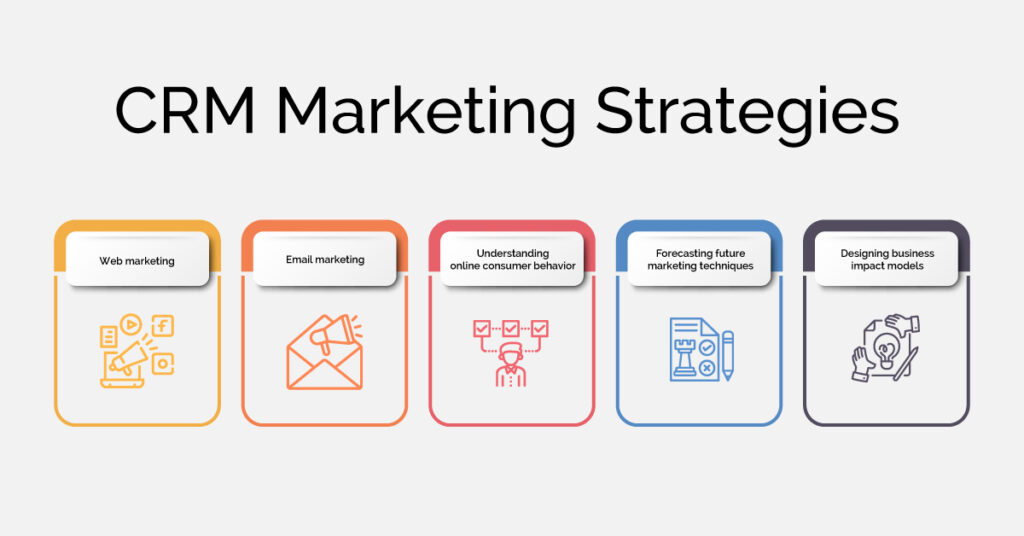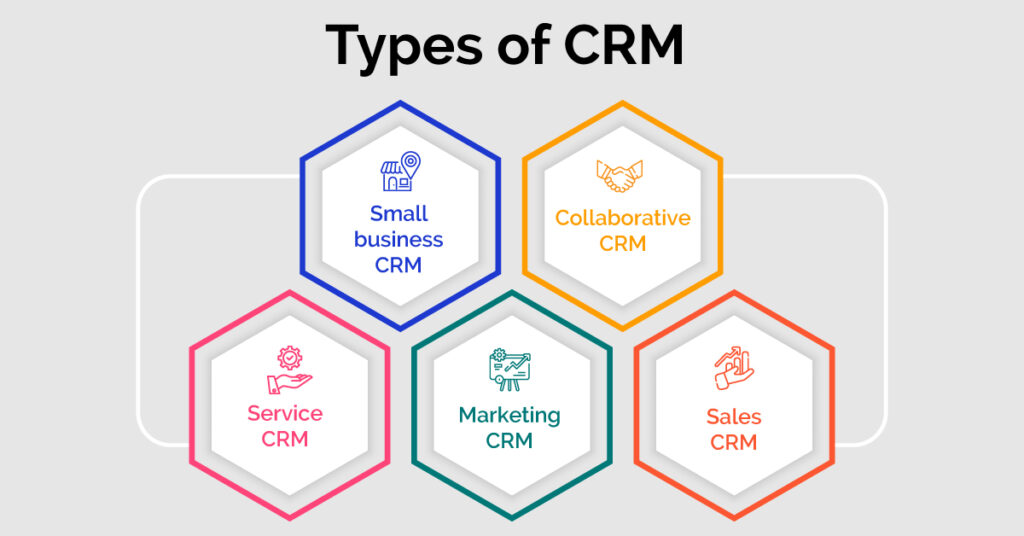
What is Customer Relationship Management (CRM) and how does it support marketing?
CRM marketing includes all the ecosystem which helps marketers in their effort to develop and regulate the relationship with the customer. CRM is defined as the guidelines, practices, and principles which a company follows whilst engaging with its audience. CRM experience includes every aspect of interaction with a customer like forecasting, service, sales-linked processes, and the analysis of behaviors and trends. This guide explains CRM marketing, CRM database, the relationship between CRM and marketing, its types, and functions, and much more.
What is CRM Marketing?
“Customer relationship management” (CRM) marketing is a term defined as the tactics, strategies and technologies which support such techniques used by marketers to build and manage customer relationships throughout the user lifecycle. The objective of CRM marketing is to enhance and standardize relationships with the customer to increase revenue, customer retention, loyalty, and a customer lifetime value.
What is CRM Database?
A CRM database is a software platform developed to support any company’s CRM tactics and functioning. CRM databases differ in their sophistication levels, from causal gathering and arranging user information to carrying out advanced customer data analysis, next best action, and customer segmentation suggestions. CRM databases often include several extra elements depending on the organizational requirements and industry.
CRM and Marketing
Today, CRM has led to new aspects in the marketing field by enhancing marketing execution and functioning. Innate CRM-linked marketing techniques encourage against the conventional strategies as they provide higher-up performance and thumping companies. Some of the CRM marketing strategies are discussed below:

- Web marketing: With emerging web popularity, people are shifting towards web shopping or web marketing. This strategy helps suppliers and customers to interact in a real-time environment regardless of location. Some advantages of this strategy are:
- It is cost friendly as it decreases the cost of physical targeting
- Marketing campaigns can be easily tested, calculated, and tracked
- Any brand can reach a higher number of people in less time
- They are more promotional than manual campaigns
- Email marketing: It was found to be quite inexpensive and more efficacious against phone and mail-derived CRM marketing techniques. It is direct marketing that is based on data and contributes to highly precise customer responses and fruitful execution of customer requirements. Some other elements of email marketing are sending eCards, eCoupons, newsletters, and others.
- Understanding online consumer behavior: A CRM marketing strategy provides a medium to evaluate the user’s online buying activities. This effective technique offers the finest accuracy with high speed that encompasses profiling services implementing detailed bits of data about users buying activities. Significantly, understanding consumer online buying behavior helps companies to change or fix any marketing strategy to mold the process into future perspectives.
- Forecasting future marketing techniques: This CRM marketing strategy helps to comprehend the emotional behavioral change of customers through statistical analysis and regression of customer behavior. Although this CRM marketing strategy is implemented with higher risk but is considered to offer astonishing rewards.
- Designing business impact models: It is significant for a company to check its marketing performance consistently such that the strategies never degrade and help to lead to better outcomes. Overall, these CRM marketing tactics make a part of the CRM system to grow high-end marketing business.
Types of CRM
CRM systems support businesses to manage and analyze customer information for better growth, retention, and overall customer relationship management A few types of CRM systems are:

- Small business CRM: To provide the best possible CRM experience for smaller companies with few users. This type of CRM is much simpler, innate, and cost-friendly to carry out as compared to enterprise CRM.
- Collaborative CRM: It supports customer data sharing beyond company segments and among internal stakeholders to enhance communication, efficiency, and work seamlessly altogether.
- Service CRM: Integrated focused user service assistance with marketing and sales. Other attributes are several contact points encompassing responsive social media, email, chat, and online chat.
- Marketing CRM: To develop, track, and automate marketing campaigns online through email, along with finding out focused customer segments. Marketing CRM offers real-time statistics and can apply A/B testing to standardize techniques.
- Sales CRM: To increase sales and drive the pipeline of new prospects and users. Focuses on the sales cycle, from tracking leads to closing deals.
Insight into Functions and Features of Advanced CRM Software
Advanced CRM software commonly offers the following features:
- Offers automatic marketing: Companies that conduct automatic marketing campaigns sometimes use advanced CRM marketing. For instance, a new employee who joins an organization’s mailing list consequently gets a welcome post followed by other customized posts depending upon their reply to an earlier communication.
- Enhances offline mobile access: Advanced CRM platforms often provide access flexibility and utilize the CRM software offline on mobiles. This is significantly useful when there is no internet connectivity.
- Automate sales: Advanced CRM platforms assist companies during the customer lifecycle. Marketing automation helps businesses to evaluate sales, tasks, and visualize trends.
- Provide instant field service: Some advanced CRM software offers real-time field assistance to users through routing facility calls automatically to the closest supporting person. This mechanism reduces paperwork, eliminates response time, and enhances the technical support team’s productivity.
How CRM software helps marketing and sales teams collaborate effectively
The arrival of tools such as Microsoft teams, Slack, Zoom, and the like has led to communications within teams to manage work dynamics. However, companies need a solution that integrates these teams and enables them to manage customer needs seamlessly. It is here only; CRM comes into the picture.
A CRM platform can offer these departments notes and records of interaction and conversations among teams and with users that makes it easy for the company to retain the customer. The added transparency of such tools offers the grounds for much-required trust between both groups involved.
Mostly such tools permit teams to work together on customer data, which moreover, prevents any variations in the data. The emerging famous cloud-derived CRM solution makes it possible.
Historically, marketing and sales teams had complexities functioning altogether to lead to the finest results. Through a CRM, these teams can align their mechanism, plan effectively, and drive more sales.
Conclusion:
CRM marketing enables any company’s internal stakeholders to gain a comprehensive view of its leads and customers. Through this view, companies can build a personalized lead and customer journey which gives a higher conversion rate. To select the best CRM for any company, you need to analyze the team’s budget and goals, then select attributes that align with them. Lastly, take the help of a soft rollout to ensure you have the right fit before committing.




